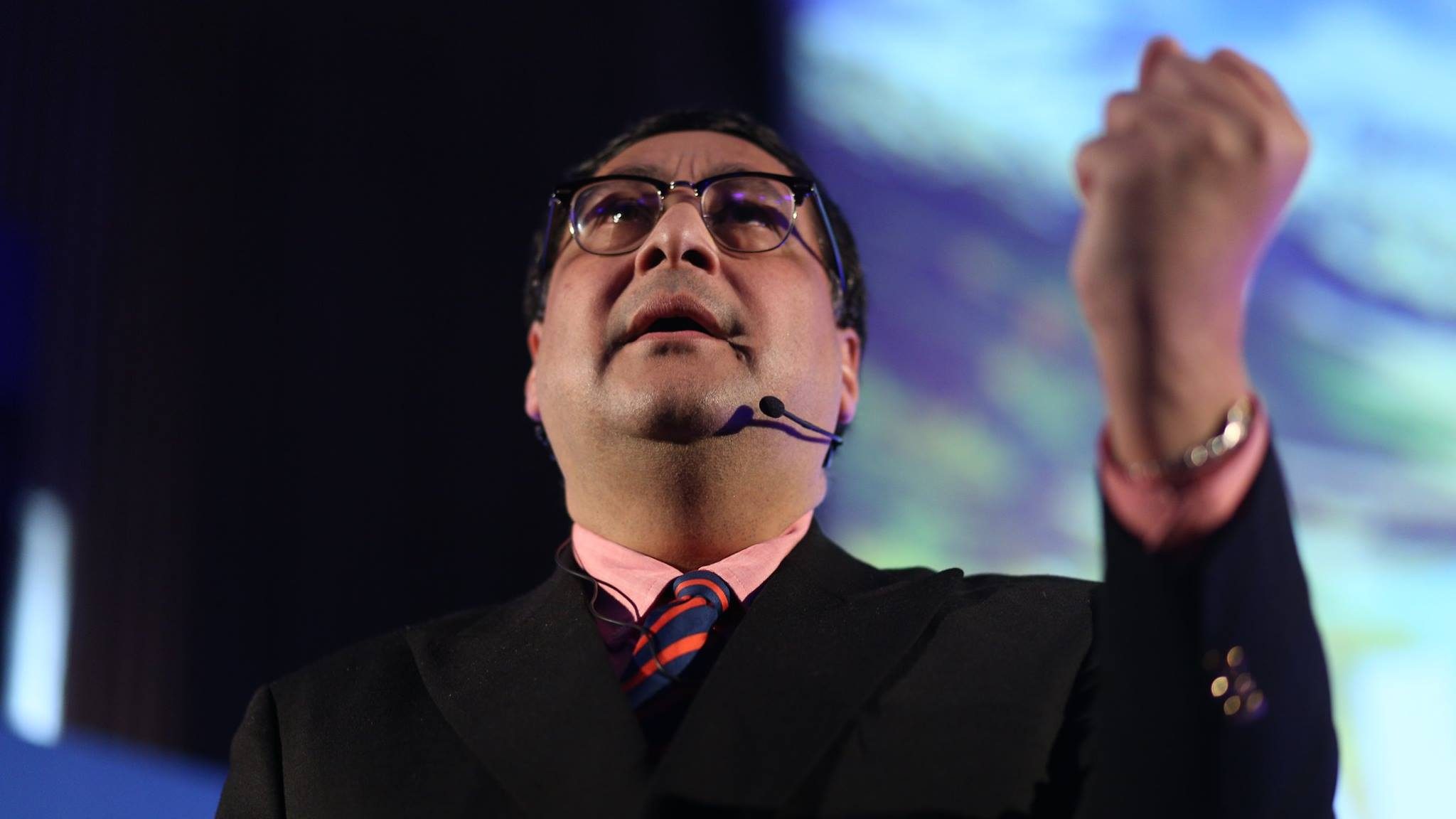Najam Leads Seminar on Religion and Environment

On February 13, 2023, Adil Najam, Dean Emeritus and Professor of International Relations and Earth and Environment at Boston University’s Frederick S. Pardee School of Global Studies, delivered the last lecture in a six-part speakers series on “Faith in Conversation,” organized jointly by the Perkins School of Theology at the Southern Methodist University (SMU), the Interfaith Council of The Thanks-Giving Foundation, and The Dallas Holocaust & Human Rights Museum.
The theme of this year’s lecture series was “The Ethics of Creation Care;” Najam was invited to present the Islamic perspectives on the subject in a lecture titled “Islam & Ethics of Creation Care.” Najam, who is currently the Mahatir Mohamad Visiting Fellow at the Oxford Centre for Islamic Studies, presented a lecture around the theme of climate change and the values challenge in implementing a positive global transition. He argued that environmentalists need to look towards religion and faith traditions because climate change is not only an existential challenge but also a challenge to values and ethics.
 Najam suggested that the view that “if we only get the science right, the right values will themselves emerge” has proven to be insufficient and it is time to move from a science-faith divide to a common strategy for confronting one of the great moral crises of our times: climate change. He pointed out that young people often talk about climate change in moral and ethical terms and religion needs to address their felt needs by highlighting the aspects that have long existed in most faith traditions that correspond to environmental and climate stewardship. Najam used examples and concepts from the Islamic tradition – mizan, khilafah, tawakal, waqf, and fitrah – to highlight that a vocabulary for climate action, as well as climate policy, exists within major faith traditions to advance global climate goals.
Najam suggested that the view that “if we only get the science right, the right values will themselves emerge” has proven to be insufficient and it is time to move from a science-faith divide to a common strategy for confronting one of the great moral crises of our times: climate change. He pointed out that young people often talk about climate change in moral and ethical terms and religion needs to address their felt needs by highlighting the aspects that have long existed in most faith traditions that correspond to environmental and climate stewardship. Najam used examples and concepts from the Islamic tradition – mizan, khilafah, tawakal, waqf, and fitrah – to highlight that a vocabulary for climate action, as well as climate policy, exists within major faith traditions to advance global climate goals.
Najam also highlighted that the immediacy of climate justice in the “Age of Adaptation” now means that we have to look towards our obligations not only to nature but to other human beings within the context of nature. He posited the question: “If so many of us agree that so much of the climate challenge is a challenge for ethics and values, then why are we shy of looking towards the one place from which more than 85% of the people claim to get their ethics and values from?”
The 6-part monthly series featured scholars representing perspectives from Judaism, Buddhism, Native Americans, Islam, Christianity and Hinduism on the ethics of creation care. Najam’s was the last lecture of the series for the 2022-23 calendar.
Adil Najam is a global public policy expert who served as the Inaugural Dean of the Frederick S. Pardee School of Global Studies at Boston University and was the former Vice-Chancellor of the Lahore University of Management Sciences (LUMS). His research focuses on issues of global public policy, especially those related to global climate change, South Asia, Muslim countries, environment and development, and human development. Read more about Professor Najam on his Pardee School faculty profile.